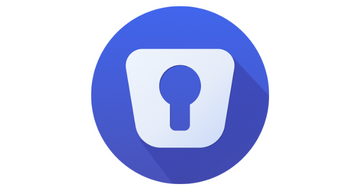Introduction: Password Manager for Linux
Passwords are absolutely everywhere. Whether you’re logging in to a social media site, a forum, your online bank account, or an e-shop, you’ll need a password to get in and secure your account.
This is a simple but highly effective form of cybersecurity. There’s just one downside: passwords can be very hard to remember.
Studies show that countless people forget passwords every day, and many people have a hard time coming up with and remembering unique passwords for the dozens of different accounts they have. This is where password managers come into play.
A password manager for Linux, for example, can safely store all of your password data in a secure digital vault. In this article, we’ll help you find the very best password manager for your Linux machine.
Overview
Linux is the least-used of the three major operating systems (Windows, Mac, and Linux) but it still has its own set of dedicated users, and many people like the freedom, security, and versatility offered by this open-source OS.
However, just like on any other operating system, many Linux users have problems with passwords. They find it difficult to remember all of the different passwords for their accounts and create strong, secure passwords to protect their data.
A password manager for Linux can help with this. In this guide, we’ll look at the pros and cons of Linux password managers and answer common questions you may have.
What Is a Linux Password Manager?
A password manager for Linux is a piece of software that is designed to store password data in a safe space. It allows you to access your passwords when you need them to log in to your accounts, but also protects your password data from prying eyes and hackers.
In other words, a Linux password manager can provide both security and efficiency. It reduces your risk of losing or forgetting your passwords and makes it much easier and faster to log in to your different online accounts.
Many of the top-rated Linux password managers also have extra features, such as the ability to sort passwords into different folders for easier access and the ability to generate new passwords that are very secure for your new user accounts.
Pros and Cons
There are plenty of pros to using a password manager for Linux, as well as a few cons, as shown in the table below:
| Pros | Cons |
| Many Linux password managers are open source | Lack of options on Linux compared to Windows and Mac |
| Gives you an easy way to store and access your passwords | Most password managers have premium price tags |
| You can use your password manager to get stronger passwords for new and old accounts | Beginners may need a little time to learn how the password manager works |
| Less stress about losing or forgetting your most important passwords |
How to Choose a Linux Password Manager
There are a lot of Linux password managers out there, but some are much better, more secure, and more reliable than others. Keep these factors in mind to help you pick the right one:
Compatibility
One of the key things to note about Linux password managers is that the Linux OS does not have as many password manager options like Windows or Mac. Many of the most famous password managers don’t have Linux apps, so you’ll have to make sure any app you use is fully Linux-compatible.
Set-Up and General Usage
Every Linux user knows that installing, setting up, and using applications and pieces of software on the Linux platform is a little different from other operating systems, like Windows. If you want an easy and seamless experience, you need to find a Linux password manager that offers a quick, simple setup.
Features and Functionality
Check the product details of each Linux password manager and see what it can actually do. All password managers offer password storage and management, but the best ones have many more functions like password generation, data breach scanning, password health monitoring, and more.
Why a Password Manager for Linux Is Important
Do you really need a password manager for Linux? Well, many experts say so, and here are just a few reasons why:
- Hacking Attempts on the Rise – Even though Linux can be a very secure platform, it’s not immune to hacking, and hackers are increasingly targeting Linux machines in an attempt to steal data. A password manager can protect your passwords from these hackers.
- An Easier Online Life – Many people spend a lot of time online nowadays, and a password manager is a great way to make your digital life easier and more convenient, saving you lots of time and preventing plenty of hassle.
- Improving Your Password Habits – Are you someone who uses the same password for many accounts or uses weak and short passwords? If so, a password manager for Linux can help you improve your password habits in a major way.
Is a Password Manager for Linux Safe?
A lot of people worry about safety when using password managers, and it’s true that some apps are less safe than others. However, as long as you use a good quality password manager on Linux, you shouldn’t have any worries.
The best Linux password managers are designed to be super safe, offering the best levels of protection for your precious password data. They come with a master passcode that only you can use to access your account and may offer extra protection like biometrics or 2-factor.
Who Should Use the Password Manager for Linux?
Here are some of the key groups who can benefit from using a password manager for Linux on a daily basis:
People Who Want to Improve Their Cybersecurity
Cybersecurity is an increasingly important issue in today’s world, and there are so many hackers and digital threats out there. Having strong cybersecurity skills can help you keep your accounts and data safe, and a password manager is a super tool to provide you with stronger passwords and give you hints and tips to make your password habits much better.
Busy People with Hectic Lifestyles
Are you someone who has a busy, hectic life with lots of things that need to be done each day? If so, you may benefit from tools and technology that can save you precious seconds each day. A password manager for Linux can save you a ton of time that you would usually spend making passwords, entering passwords, or trying to remember forgotten passwords.
Online and Remote Workers
Many people work online nowadays or operate remotely from their own home offices and are more independent. If you’re an independent online worker, it’s up to you to stay organized, and a password manager is a great way to do this. It helps you organize all of your account information in one safe place.
How Do Linux Password Managers Work?
When you set up an account with a password manager for Linux, it creates a unique, secure, digital vault for your passwords to be stored in. This vault is then kept either on your machine for local access or in the cloud, so you can access it from other devices.
The vault is filled with your password information as you enter passwords into different sites, or you can simply go directly into the password manager app and type in your various passwords.
From that point on, you can use your password manager to access and fill in passwords for your different online accounts. You can also use it to generate new passwords and access other features, depending on which PM you use.
Benefits
Not sure if a password manager is right for you? Well, here are some of the key benefits that Linux can users can enjoy with a password manager set up on their machines:
Smart Password Organization
Studies show that a lot of people are disorganized when it comes to passwords. Many people write down passwords on Post-It notes or in notebooks, while others have password reminders dotted around in digital note files. Using a password manager is a much smarter and safer way to keep your passwords organized.
Better Passwords for Every Account
Many people, including Linux users, struggle to come up with strong, unique passwords for each of their accounts. This can lead to certain accounts being easier to hack or lacking security. With a password manager, it’s a lot easier to make unique passwords for every account that are tough to crack and give you the best protection.
A Seamless Experience
A lot of Linux users enjoy the platform’s versatility and customization, and there are so many ways in which you can play around with Linux. However, it can be a little obtuse and awkward in certain areas. Having a password manager for Linux is one simple way you can make your system more streamlined and convenient to use.
Keeping Up with the Times
The usage of password managers is on the rise all over the globe. Linux users are often tech-savvy people who like to be ahead of the curve when it comes to new technological trends and developments, and if you’d like to keep up with the times, getting a password manager for Linux is a great step to take.
Trends in Password Managers for Linux
Next, let’s take a look at a few of the key trends in the world of password management on the Linux platform.
Linux Users Favor Open-Source Password Managers
Since Linux is an open-source platform, many of its users tend to favor open-source software that can be easily adjusted and customized to suit the user’s needs. This trend extends to password managers on Linux, too.
Reports show that many of the most popular password managers for Linux are open-source. This may be something you want to consider as well when choosing your own password manager to use.
Many People Use Easy-to-Hack Passwords
Studies also suggest that the need for password managers is particularly high from a cybersecurity standpoint, as a shocking number of people are using basic, easy-to-hack passwords like “abc123” or simply “password”.
Close to a quarter of people use these kinds of weak passwords for major accounts, often because they are unaware of the risks or because they don’t know how to make more secure passwords. Password managers can help to educate the population on smart password habits.
More Password Managers Are Coming to Linux
For many years, Linux appeared to be an afterthought in the minds of many password manager developers; a lot of developers seemed to focus their efforts on making Windows and Mac versions of their apps but often ignored or overlooked Linux users.
However, this is slowly starting to change. In recent years, some of the biggest names in the password management world have started to move onto Linux, responding to demands and requests from the platform’s users and giving the Linux crowd more choices than ever.
How to Setup and Install a Password Manager for Linux
The method of installation for password managers on Linux will depend on which password manager you choose.
Some have dedicated Linux apps that can simply be downloaded and set up as normal, while others will require a little more work. Check the instructions provided by the developer of your chosen password manager to learn more.
Once the app is installed, you can run it and start entering your password information, ready to be accessed and used in the future.
Summary
If you’re looking for a great way to make your Linux user experience smoother, faster, more secure, and more convenient, or if you’re just tired of having to remember all of your different passwords, a password manager for Linux is exactly what you need. Choose one from the list provided and see what a password manager can do for you.
Frequently Asked Questions (FAQ)
Author
Methodology
- Who?We are online security experts: Our team of online security experts provides practical tips and advice on protecting yourself from cybercriminals online.
- Why?We are passionate about users accessing fair SaaS pricing: At PasswordHero, our mission is to equip everyone with the knowledge and tools to protect themselves online.
- How?With the latest news and accurate resources: Our website manager tests the software, and our editorial team fact-checks everything onsite, and we use first-hand testing and leading data sources. .








